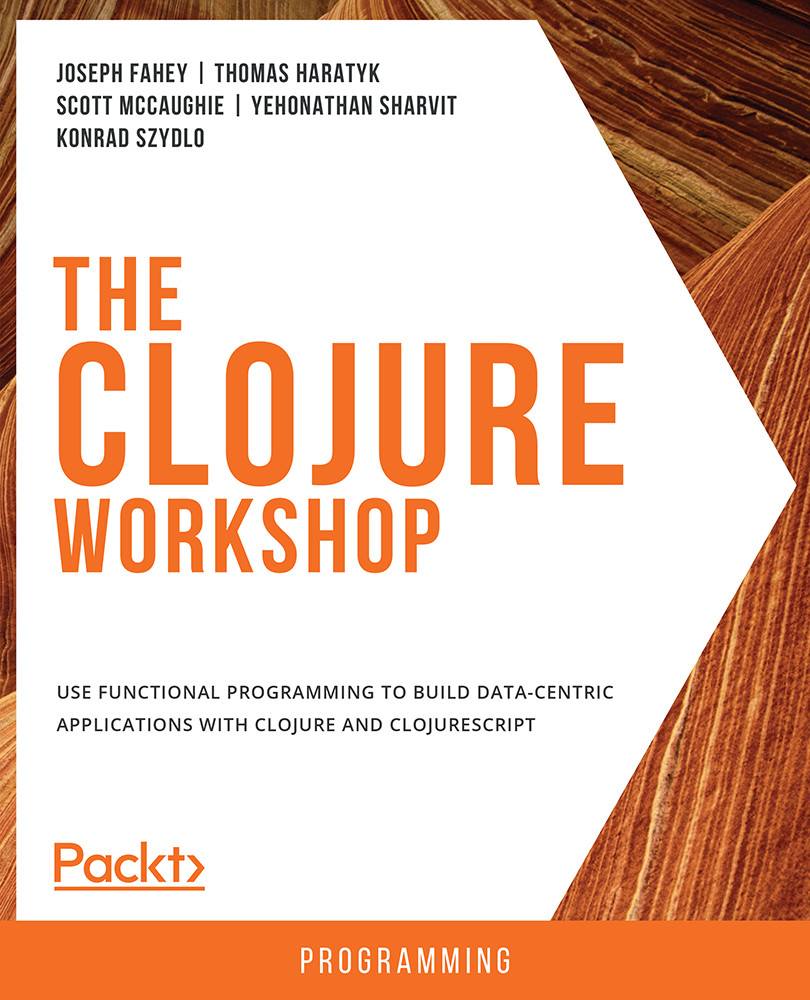-
Book Overview & Buying

-
Table Of Contents

The Clojure Workshop
By :

The Clojure Workshop
By:
Overview of this book
 Free Chapter
Free Chapter
 Sign In
Start Free Trial
Sign In
Start Free Trial


 Free Chapter
Free Chapter
Ever since the Clojure language was first introduced, its concurrency model has been one of its major selling points. In programming, the word "concurrency" can apply to a lot of different situations. To start with a simple definition, any time your program or your system has more than one simultaneous flow of operations, you are dealing with concurrency. In multithreaded Java programs, that would mean code running simultaneously in separate processor threads. Each processor thread follows its own internal logic, but to work properly your program needs to coordinate the communication between the different threads. Even though JavaScript runtimes are single-threaded, both the browser and Node.js environments have their own ways of dealing with simultaneous logical flows. While the roots of Clojure's concurrency are definitely in Java, some of the ideas and tools apply equally in ClojureScript.
In this chapter, you will learn the basics of concurrent programming...
